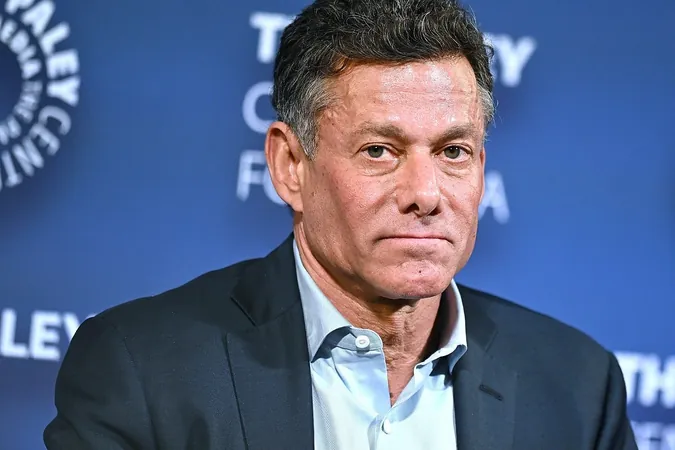
Take-Two CEO Calls Out AI Hype in Gaming: A Candid Perspective from the Industry Giant
2024-11-15
Author: Yu
In a stark commentary on the current state of the gaming industry, Strauss Zelnick, the CEO of Take-Two Interactive—the powerhouse behind beloved franchises like Grand Theft Auto—has voiced skepticism about the rampant enthusiasm surrounding artificial intelligence (AI) in gaming.
Speaking during an interview with CNBC, Zelnick emphasized the long-standing presence of AI in the gaming sector, albeit in its more rudimentary forms. "In terms of AI, the interactive entertainment business has been into AI forever," he stated. With a pointed critique of the terminology, he quipped, "AI stands for 'artificial intelligence,' which is an oxymoron; there is no such thing."
His remarks arrive amid an industry increasingly entwined with fears of layoffs and the suffocating presence of AI technologies, such as automated voice acting, that threaten traditional employment avenues. As many executives cling to the potential of AI to revolutionize gameplay and production, Zelnick's perspective serves as a sobering reminder of the complexities and risks involved.
While gaming studios have leveraged basic AI to enhance gameplay—think of how non-playable characters (NPCs) engage with players—recent advancements in generative AI offer more sophisticated capabilities. Technologies like OpenAI's DALL-E are now enabling game developers to auto-generate graphics and game assets. However, Zelnick cautioned that these tools might lead to lower quality products and increased workforce anxiety, with some employees feeling their jobs may be at risk due to the ever-growing reliance on AI.
Despite his critique, Zelnick sees a silver lining. He believes that rather than replacing creative professionals, AI can alleviate some of the more tedious aspects of game development. "What [AI] means is that our creative people will be able to do fewer mundane tasks and turn their attention to the really creative tasks," he explained. Ultimately, he argues, machines lack the ability to make those crucial creative decisions that define exceptional gaming experiences.
As the industry grapples with the implications of AI integration, Zelnick's insights underscore the need for a balanced approach—one that harnesses technological advancements while still valuing human creativity. The conversation around AI's role in gaming remains complex, but with industry leaders like Zelnick calling for realism, the hype surrounding it may soon face much-needed scrutiny.
In a landscape teetering on the edge of change, one thing is clear: the future of gaming will hinge not solely on technology, but on the creative visions of the people behind the screens.




 Brasil (PT)
Brasil (PT)
 Canada (EN)
Canada (EN)
 Chile (ES)
Chile (ES)
 España (ES)
España (ES)
 France (FR)
France (FR)
 Hong Kong (EN)
Hong Kong (EN)
 Italia (IT)
Italia (IT)
 日本 (JA)
日本 (JA)
 Magyarország (HU)
Magyarország (HU)
 Norge (NO)
Norge (NO)
 Polska (PL)
Polska (PL)
 Schweiz (DE)
Schweiz (DE)
 Singapore (EN)
Singapore (EN)
 Sverige (SV)
Sverige (SV)
 Suomi (FI)
Suomi (FI)
 Türkiye (TR)
Türkiye (TR)